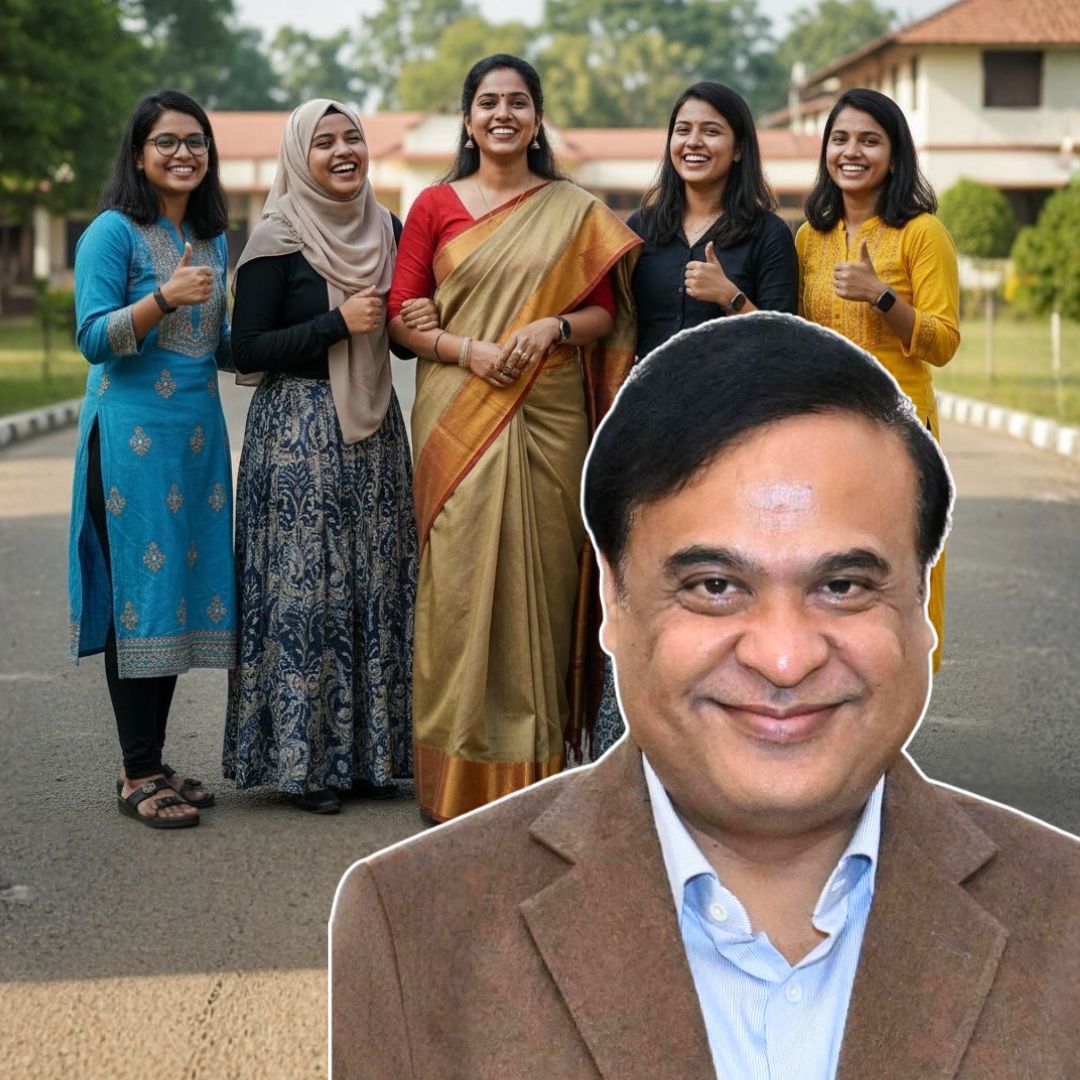The Assam Assembly has passed the Assam Prohibition of Polygamy Bill, 2025, banning polygamy across all religious communities except Scheduled Tribes and Sixth Schedule areas, with penalties of up to 10 years imprisonment.
Chief Minister Himanta Biswa Sarma clarified this law applies irrespective of religion, and is not against any specific community.
Sarma also promised that if re-elected in 2026, he would table a Uniform Civil Code (UCC) Bill to implement uniform personal laws in Assam. Opposition members proposed amendments, but these were defeated, allowing the bill to pass unanimously.
Polygamy Bill and Its Scope
The new Bill criminalises polygamy, making it punishable with imprisonment up to 10 years. It excludes Scheduled Tribes and regions under the Sixth Schedule from this prohibition, respecting existing tribal customs and autonomy. The law penalises individuals who marry while having living spouses without legal separation.
By encompassing Hindu, Muslim, Christian, and other communities under one legislation, the Bill addresses polygamy as a social issue rather than a religious one. Sarma emphasised this inclusivity to counter perceptions that the law targets any particular religion.
Penalties and Additional Provisions
The Bill stipulates stringent punishments including fines and imprisonment, aiming to deter polygamous practices. Concealing a previous marriage or abetting polygamous unions attracts severe repercussions.
Beyond individual penalties, the law also imposes fines and imprisonment on religious figures, village heads, and guardians involved in conducting or facilitating illegal marriages.
The bill further ensures compensation for women affected by these unlawful acts, signifying a step towards protecting women’s rights and dignity in Assam. Legislators discussed the need for this law to empower women and promote social justice.
What Is The ‘Assam Prohibition of Polygamy Bill’?
The Assam Prohibition of Polygamy Bill, 2025, criminalises the practice of having more than one spouse simultaneously without legally dissolving the previous marriage.
It makes polygamy a cognisable criminal offence punishable by up to seven years’ imprisonment for the first offence and up to 10 years if the existing spouse is concealed at the time of the subsequent marriage.
The Bill also proposes fines and prison terms for those solemnising or abetting polygamous marriages, including priests, qazis, village heads, and guardians. Additionally, women who are victims of polygamous marriages are entitled to financial compensation designated by the state government.
Who Is Exempted from the Bill?
The Bill exempts people belonging to Scheduled Tribes (ST) and regions under the Sixth Schedule of the Indian Constitution, recognising their unique cultural and social customs. These exemptions respect the traditional practices and autonomy granted to tribal communities under the constitution.
Therefore, polygamy continues to be legally permissible in these areas and among these communities, while it is prohibited for others across Assam. This approach aims to balance cultural sensitivity with gender justice.
Uniform Civil Code In Assam
Chief Minister Himanta Biswa Sarma has promised that a Uniform Civil Code (UCC) Bill will be tabled in Assam if he is re-elected in the 2026 Assembly elections.
The UCC aims to create uniform personal laws for all communities, encompassing marriage, divorce, inheritance, and related matters, thereby eliminating disparities based on religion. The recent ban on polygamy is seen as a preliminary step towards this larger legal reform.
The CM also announced plans to introduce a bill against “deceptive marriage” during the next session, signalling the government’s strong intent to regulate personal laws with a focus on equality and social justice.
Future Legislative Plans and Political Context
CM Himanta Biswa Sarma gave strong indications that banning polygamy is a precursor to implementing the Uniform Civil Code in Assam. He assured the assembly that if he returns to office after the 2026 elections, a UCC Bill will be introduced in the first session of the new government.
He also announced plans to bring a bill against “deceptive marriage” by February 2026, including efforts to curb “love jihad,” which has been a politically charged topic in Assam.
These moves demonstrate the state government’s focus on legislating personal laws with an emphasis on equality and social reform, which has sparked mixed reactions among political parties and sections of society.
The Logical Indian’s Perspective
The Assam Assembly’s decisive step to ban polygamy and the promise to introduce a Uniform Civil Code highlights an important effort to establish uniformity, equality, and women’s rights in personal laws.
While respecting tribal customs and identities, Assam’s approach seeks to balance tradition with progressive legal reforms. The Logical Indian advocates for careful implementation of these laws through inclusive dialogue, ensuring social harmony and mutual respect prevail.












